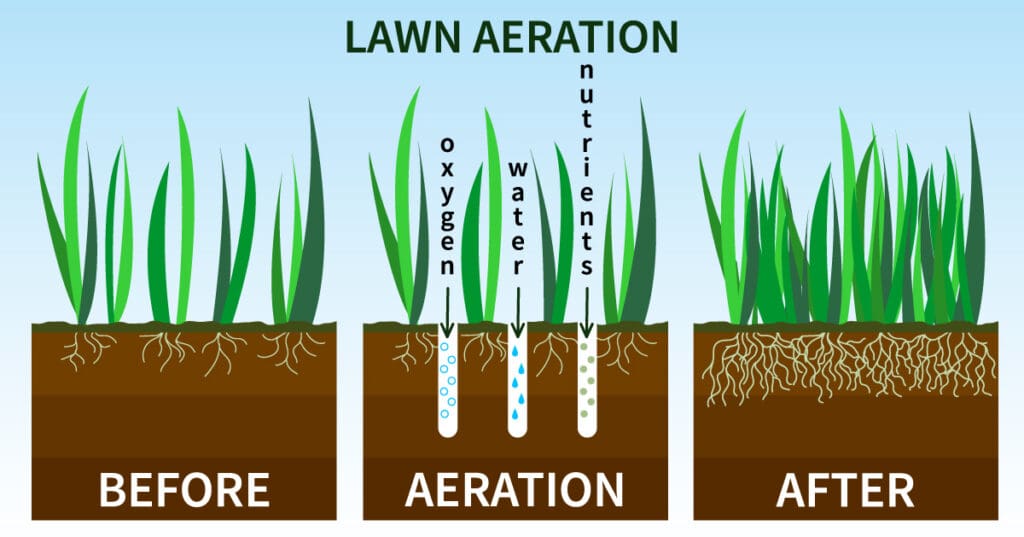The Importance Of Aeration and Overseeding
Read MorePosted on: Jul 24, 2024Luis M Pérez
What Is Liquid Aeration?
Liquid aeration is an alternative to the traditional core aeration. Any aeration’s main benefit is allowing air, water, and nutrients to penetrate the soil and reduce soil compaction. Traditionally, aeration is done by running a large machine over your lawn that pokes holes to achieve these essential benefits. This method aims to provide the same results with less mess!
How Does Liquid Aeration Work?

Liquid aeration is a natural solution that saturates the soil, mixes deep into the ground, and expands. These tiny pockets of air allow water and nutrients to freely reach the grass’s root system without disrupting the soil’s top layer. By limiting that disruption, we also limit space on the surface for new weeds to grow.
Core Aeration vs. Liquid Aeration
You may ask yourself, what’s the difference? Is one better than the other? The answer is yes and no. Each solution provides similar benefits. While mechanical core aeration provides quicker results by physically puncturing the soil, those holes get filled in relatively and quickly as the soil settles. Liquid aeration provides a slower process but still penetrates and contributes to the health of the soil, providing more long-term results.
Can I overseed with this method?
Absolutely! Because the solution’s components break down thatch, this also allows for more soil-to-seed contact, promoting more germination of new grass seeds. Always keep the new seeds hydrated for at least two weeks, and you won’t be disappointed!
Lawn overseeding is good for lawns that suffer from weed infestation, drought stress, insect or disease damage, or show other evidence of decline, such as bare patches. Overseeding a yard with newer turfgrass is often the best way to thicken the lawn and improve its health and appearance. In addition, the new turf grass can better resist damage from drought, turf grass diseases, and lawn damaging insects.
The Benefits of Lawn Overseeding Include:
- Filling in areas of turf damaged by summer stress, diseases, or insects
- Thickening and increasing the density of thin lawns
- Improving the lawn’s appearance
- Positive Environmental Benefits by having thick, lush grass.
- Enhancing the lawn’s ability to fight weeds, insects, and diseases
Want To Learn More? Do You Have Any Questions?
For more information on Liquid Aeration and Overseeding, please contact our Lawn Care Expert, Luis Perez, via email at luisp@doctorgreen.com.

